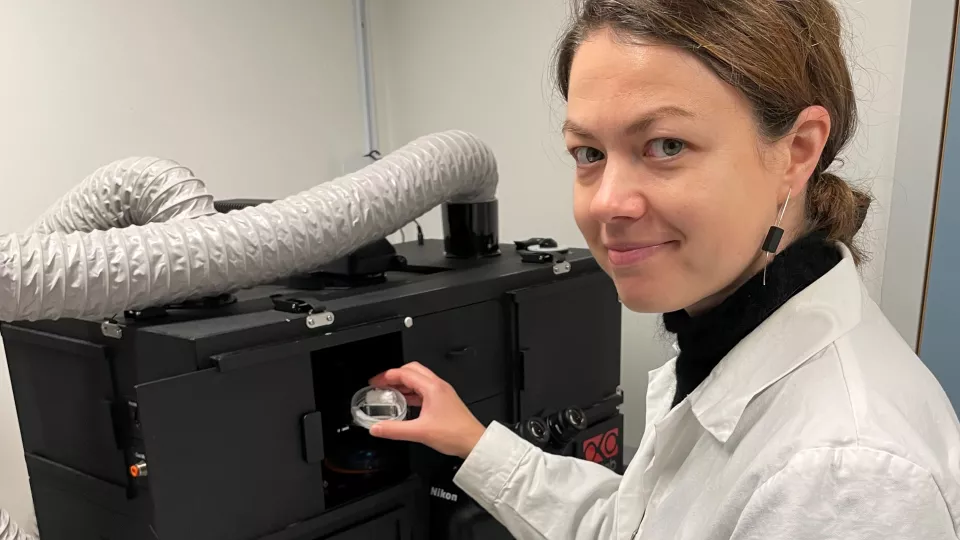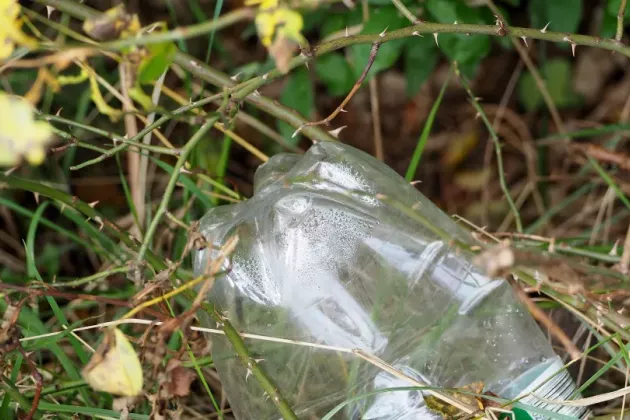The ERC Starting Grant is intended for early-career researchers and the only selection criterion is scientific excellence. After undergoing peer reviews and facing a high level of competition, the successful researchers and their projects have been ranked highest in Europe. This year, almost 2,700 researchers applied for the grant, of which 400 received it.
Milda Pucetaite, researcher in microbiological ecology, is a member of BECC since her time as a post-doc back in 2018. She received the ERC for her project “Tracing single-cell scale chemical signalling between interacting soil fungi" (INTERSPEC).
What do you think stood out with your project that was awarded with the ERC Grant? In what way, if any, has being a member of BECC helped you in your efforts to receive the grant?
It is difficult to answer this question. I guess it is always a combination of a timely project idea and luck with any type of funding. What I think works in my favour, not only for getting funding, but also for my growth as a researcher, is working in an interdisciplinary environment. I am a physicist myself, working at the Department of Biology, and a member of BECC, alongside an amazing group of biologists, soil scientists, engineers, chemists… I learn a lot of new things every day and all this expertise combined is what allows coming up with new ways of approaching research questions.
In what way could your research project INTERSPEC help tackle the Grand Challenge identified by BECC regarding “The carbon cycle response to anthropogenic and biophysical drivers?”
Large scale ecosystem processes, and especially many of those governing the carbon cycle, are driven by microorganisms. Because microbes differ in their function and activity levels, and individually respond to the conditions in their immediate microenvironment that trigger specific biogeochemical and metabolic reactions, these processes can only be fully understood if we (also) study them at microscale.
My main research is specifically focused on developing new approaches for analysing soil fungi and their interspecific interactions at single-cell scale to better understand how fundamental processes governed by the fungi affect terrestrial carbon cycling at larger scale. I typically use spectroscopy for this purpose. The method employs light at different parts of spectrum (e.g., infrared) and from different sources (e.g., lasers) to obtain information about chemical composition of any type of material, including the fungal cells and their environment. This information is then used to detect changes in fungal metabolism under different environmental conditions and during the fungal interactions; essentially, it allows clarifying who eats what, when and how fast in these systems.
INTERSPEC is still dealing with soil fungal interactions and clarification of their role in carbon cycling, but is dedicated for development of an approach for tracing chemical signalling between them live, or simply put, intercepting their communication and understanding the functioning of the signalling compounds as ‘chemical warfare’. If successful, this method can be used not only for analysing fungal-fungal interactions specifically, but also antagonist-parasite interactions, which is particularly important for finding novel biocontrol agents in agriculture.
Learn more
Short interview with Milda upon receiving the grant.
Milda Pucetaite's profile in Lund University Research portal






